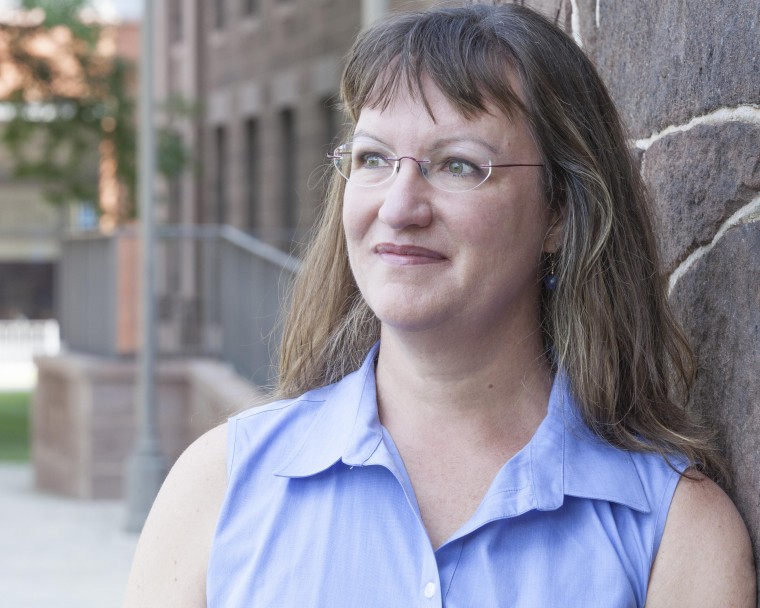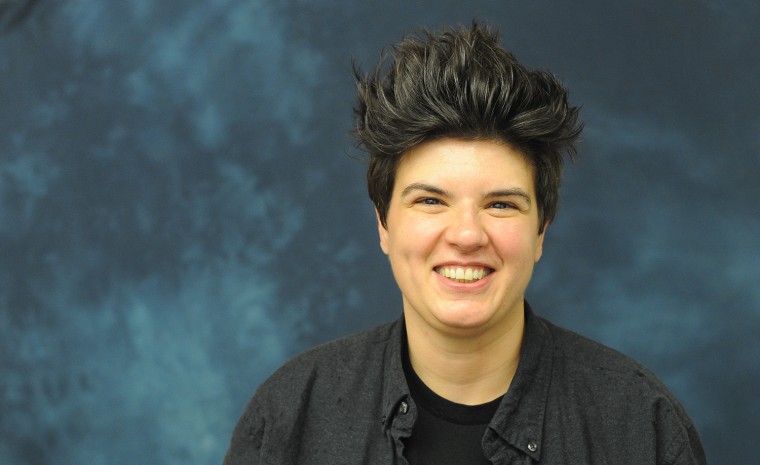Wesleyan faculty frequently publish articles based on their scholarship in The Conversation US, a nonprofit news organization with the tagline, “Academic rigor, journalistic flair.” In a new article, Elizabeth McAlister, professor of religion, writes about a lesser-known factor contributing to the abuse of children uncovered in the Catholic Church: In some strands of Catholic thought, priests who abuse children have succumbed to temptation by demons. McAlister is also chair and professor of African American studies, director of the Center for African American Studies, professor of American studies, professor of feminist, gender, and sexuality studies, professor of Latin American studies. For some…
Melanie Khamis, assistant professor of economics and of Latin American studies, was named a fellow of the Women and Public Policy Program (WAPPP) at Harvard Kennedy School for the 2018–2019 academic year. In this fellowship, she hopes to continue and expand her research on “Gender in the Labor Market,” with a particular focus on the gender wage gap and occupational choices of women. “I am excited to have this opportunity to join and work with a community of leading researchers in this field,” said Khamis. According to its website, WAPPP is dedicated to closing "gender gaps in economic opportunity, political participation,…
Anna Savage '18 has received a Princeton in Latin America (PiLA) fellowship to work with the Mariposa Foundation in Cabarete, a town on the northern coast of the Dominican Republic. She will begin the fellowship after graduation in May. Savage follows a proud tradition of Wesleyan students participating in PiLA fellowships. The Mariposa Foundation works to end generational poverty by providing a space in which girls and young women can receive high-quality academic and artistic instruction, as well as comprehensive sexual health education. The Mariposa center serves about 150 girls and places particular emphasis on musical and artistic expression, as well as on the cultivation…
Melanie Khamis, assistant professor of economics and assistant professor of Latin American studies, has co-authored a new paper published in the December 2017 issue of Labour Economics. The paper, titled "Women make houses, women make homes," examines the effects of historical labor market institutions and policies on women’s labor market outcomes. To conduct the research, Khamis and her colleagues studied the “rubble women” of post–World War II Germany, who were subject to a 1946 Allied Control Council command that required women between the ages of 15 and 50 to register with a labor office and to participate in postwar cleanup and…
Elizabeth McAlister, chair and professor of religion, is the co-author of an op-ed on CNN titled, "Haiti and the distortion of its Vodou religion." Together with her co-author, Millery Polyné, a Haitian-American professor of African-American and Caribbean history at the Gallatin School–NYU, she provides an introduction to the Vodou religion—the creation of African slaves who were brought to Haiti and converted by Roman Catholic missionaries in the 16th and 17th centuries. While Vodou shares much with Christianity, and its initiates must be Roman Catholic, it departs in its views of the cosmos. Vodou teaches that there is no heaven or hell, and…
James McGuire, professor and chair of government, professor of Latin American studies, is the author of a new op-ed titled, "Is Brazil Better Prepared than the U.S. to Fight Zika?" Brazil is ground zero for the recent wave of Zika infections. McGuire argues that the country "is better prepared to fight Zika than many people think—and is, in some ways, better prepared to fight Zika than the United States." The Zika virus is difficult to fight, and Brazil faces some major obstacles, including a deep economic crisis, political turmoil, and an ongoing battle against other infectious diseases. Still, he writes,…
Professor of Religion Elizabeth McAlister is the author of a new paper, "The Militarization of Prayer in America: White and Native American Spiritual Warfare" published Jan. 4 in the Journal of Religious and Political Practice. In the article, McAlister examines how militarism has come to be one of the generative forces of the prayer practices of millions of Christians across the globe. She focuses on the articulation between militarization and aggressive forms of prayer, especially the evangelical warfare prayer developed by North Americans since the 1980s. Against the backdrop of the rise in military spending and neoliberal economic policies, spiritual warfare evangelicals…
Professor of Religion Elizabeth McAlister spoke to The Guardian about the state of the Vodou religion in Haiti today. “Most Americans don’t know that they don’t know what Vodou really is,” said McAlister, who specializes in Haitian Vodou. The article describes the actual practice of Vodou, and discusses its critical place in Haiti's history as the first black republic. And turning to McAlister for her expertise, it addresses Vodou's stance on homosexuality. “Many, many gays and lesbians are valued members of Vodou societies,” explains McAlister, who has devoted years to researching LGBT in Haitian religion. “There is an idea that Vodou spirits that are thought to…
Q: Welcome back to Wesleyan, Professor Grappo! Can you please fill us in on what you’ve done since graduating from Wes? A: After graduating from Wesleyan in 2001, I worked a fifth grade teacher at a Catholic school in the Bronx. Then I went to grad school at Yale and got my Ph.D. in American Studies. I took a job for a couple years as an assistant professor of American studies at Dickinson College, a small liberal arts school in Pennsylvania. Last year, I came to Wesleyan as a visiting professor, and this year I began as a full-time, tenure-track…
Professor of Government James McGuire is the author of a book chapter titled "Democracy, Agency and the Classification of Political Regimes," published in Reflections on Uneven Democracies: The Legacy of Guillermo O'Donnell by Johns Hopkins University Press, 2014. Guillermo O'Donnell (1936-2011) was widely recognized as the world's leading scholar of Latin American politics. During his doctoral studies, McGuire worked closely with O'Donnell in both Argentina and the United States, translating from Spanish to English O'Donnell's Bureaucratic Authoritarianism: Argentina, 1966-1973, in Comparative Perspective (University of California Press, 1988). McGuire's chapter in this new volume commemorating O'Donnell's life and work argues that schemes for classifying…
Q: Hannah, what are you majoring in and what are some of your research interests? A: I'm a Latin American studies major, with a concentration in Spanish. I'm really interested in exploring different avenues regarding community development, poverty alleviation, and social policies in Latin America. For my major's research requirement, I wrote a paper analyzing Ecuador's human and social development progress from 1990 to 2010. Q: What is your personal interest in Latin America? A: I grew up in Texas, where I was surrounded by Hispanic influences and debates on immigration. But I first fell in love with the culture,…
In his new work The Color of Citizenship (Oxford University Press), Diego Von Vacano ’93 suggests that the tradition of Latin American and Hispanic political thought which has long considered the place of mixed-race peoples throughout the Americas, is uniquely well-positioned to provide useful ways of thinking about the connections between race and citizenship. He argues that debates in the United States about multiracial identity, the possibility of a post-racial world in the aftermath of Barack Obama, and demographic changes owed to the age of mass migration will inevitably have to confront the intellectual tradition related to racial admixture that…




